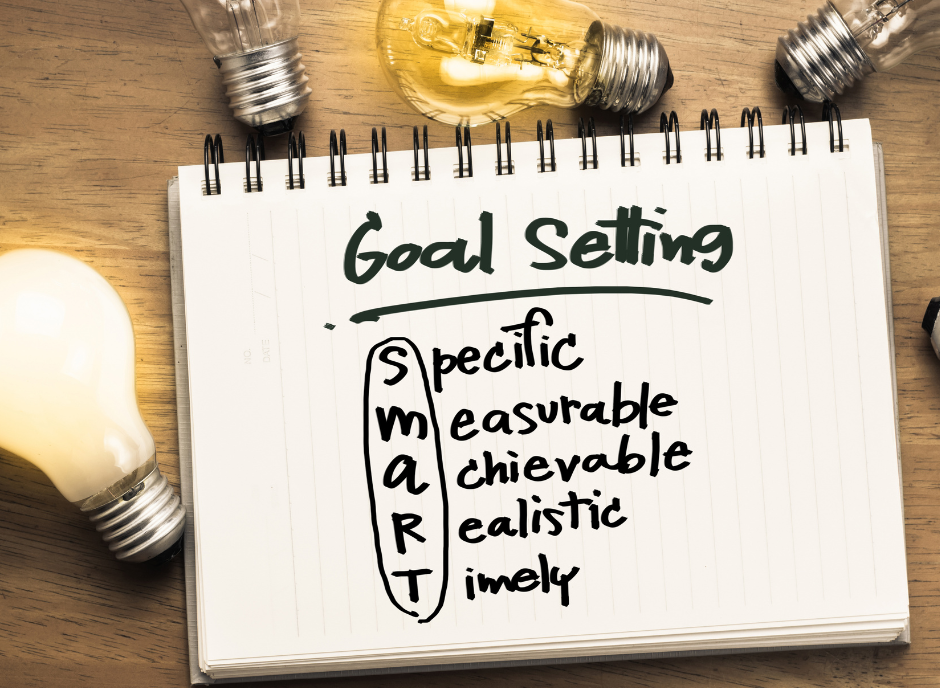Setting goals is an essential aspect of achieving success, both professionally and personally. Goals provide direction and purpose, and give us something to strive for. They help us stay focused and motivated, and can be a powerful tool for personal growth and development.
5 benefits of Setting Goals:
Direction and Purpose
Goals give us a clear sense of direction and purpose, and help us to channel our thoughts and energy towards a specific outcome. They provide a roadmap for how to achieve our desired results.Focus
One of the main reasons is that the human mind is incredibly active, and with an average of 60,000 thoughts per day. Without goals, it can be easy to get lost in this constant stream of thoughts, and to lose sight of what is truly important to us. Goals give us something concrete to focus on, and help us to stay on track.Motivation
Another benefit of setting goals is that they can help us to stay motivated and engaged. When we have a goal to work towards, we are more likely to take action and persist in the face of obstacles. Goals help to keep us motivated and engaged.Personal Growth
Setting goals can be a powerful tool for personal growth and development. Achieving goals can give us a sense of satisfaction and accomplishment, and help us to build self-confidence.Professional Success
In the workplace, goals can help to align individual efforts with the overall mission and vision of the organization. They can also be used to measure performance and progress, and to identify areas for improvement.
Setting goals is an important aspect of achieving success, both professionally and personally. Goals provide direction and purpose, and give us something to strive for. They help us stay focused and motivated, and can be a powerful tool for personal growth and development. There are many different ways to set goals, and the best approach will depend on your individual needs and circumstances.
Here are some ways to set goals:
SMART Goals
This method involves creating goals that are Specific, Measurable, Achievable, Relevant, and Time-bound (SMART). This approach helps to ensure that your goals are clear and actionable.OKR Framework
Objectives and Key Results (OKR) framework is a popular method for setting goals. It involves setting an objective, which is a specific, measurable goal, and then identifying key results, which are metrics that will be used to measure progress towards that goal.Vision Boarding
This method involves creating a visual representation of your goals, by cutting out pictures and words from magazines or creating a collage that represents your goals. This can be a powerful way to help you focus on your goals and stay motivated.Break Down
Break down your big goal into smaller, manageable chunks, and set a deadline for each part. This way you’ll be able to focus on one thing at a time and not feel overwhelmed.Prioritization
Prioritize your goals according to their importance and relevance, and focus on the most important ones first.
Review & evaluate your progress:
Regularly reviewing and evaluating your goals is a key aspect of goal-setting process, it allows you to assess your progress and make any necessary adjustments to stay aligned with your overall purpose and vision. You should regularly review your progress, reflect on what you’ve achieved, what’s working and what’s not, and adjust your approach accordingly. By doing so, you can make sure that you are staying on track and achieving your goals. It’s important to hold yourself accountable for achieving your goals by setting a deadline for each goal and tracking your progress. This can help you stay focused and motivated as you work towards achieving your desired outcomes.
Setting goals is a crucial aspect of achieving success, both professionally and personally. It provides direction and purpose, helps us stay focused and motivated, and can be a powerful tool for personal growth and development.
Remember, setting goals requires planning, focus, and commitment, but the rewards are well worth it!

